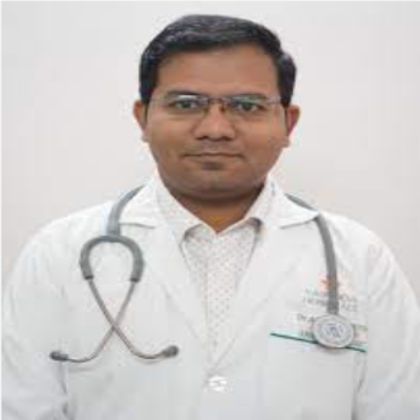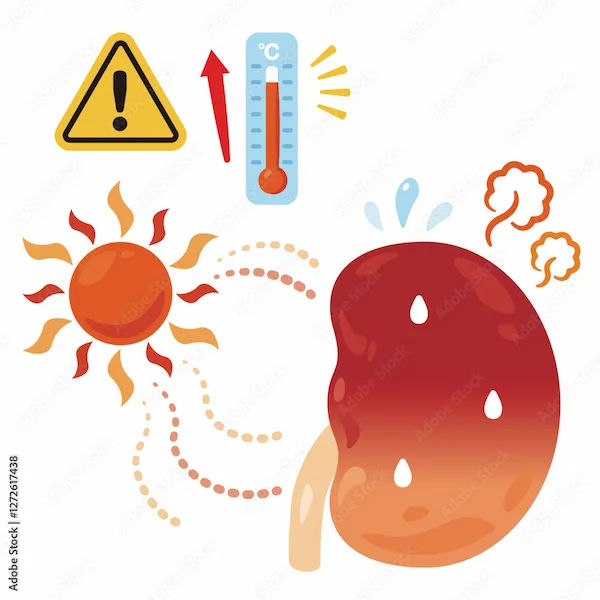Plague Overview: History, Symptoms, and Treatment
Gain insight into the plague, its historical impact, types, and symptoms. Learn how it's transmitted, current treatment options, and the importance of early diagnosis and prevention.

Written by Dr. Siri Nallapu
Reviewed by Dr. Rohinipriyanka Pondugula MBBS
Last updated on 20th Aug, 2025

The plague is a serious infectious disease that has affected humanity for centuries. While it is rare today, understanding its history, symptoms, and treatment can help people stay informed and take necessary precautions.
What Is the Plague?
The plague is caused by the bacterium Yersinia pestis. It primarily spreads through infected fleas that live on rodents like rats. Humans can get infected through flea bites, contact with contaminated animals, or inhaling droplets from an infected person or animal.
There are three main types of plague:
1. Bubonic Plague: The most common form, causing swollen lymph nodes (buboes).
2. Septicemic Plague: Affects the bloodstream, leading to severe infection.
3. Pneumonic Plague: Infects the lungs and is the most dangerous, as it can spread through coughing.
A Brief History of the Plague
The plague has caused some of the deadliest pandemics in history:
The Black Death (1347-1351): Killed an estimated 25-50 million people in Europe.
The Great Plague of London (1665-1666): Caused widespread death before the Great Fire of London helped control it.
Modern Cases: While rare, outbreaks still occur in parts of Africa, Asia, and the Americas.
Thanks to modern medicine, the plague is now treatable if detected early.
Symptoms of the Plague
Symptoms vary depending on the type of plague but generally appear within 1-7 days after exposure.
1. Bubonic Plague Symptoms
Sudden fever and chills
Weakness and fatigue
Painful, swollen lymph nodes (buboes) in the groin, armpit, or neck
2. Septicemic Plague Symptoms
Fever and chills
Extreme weakness
Abdominal pain, diarrhoea, and vomiting
Blackened skin (gangrene) in fingers, toes, or nose
3. Pneumonic Plague Symptoms
High fever
Cough with bloody mucus
Difficulty breathing
Chest pain
Pneumonic plague is the most severe and can be fatal within 24-48 hours if untreated.
How Is the Plague Diagnosed?
Doctors diagnose the plague through:
Blood tests: To detect Yersinia pestis bacteria.
Lymph node fluid test: For bubonic plague.
Sputum test: For pneumonic plague.
Early diagnosis is crucial for effective treatment.
Treatment for the Plague
The good news is that the plague can be treated with antibiotics if caught early. Common medications include:
Streptomycin
Gentamicin
Doxycycline
Ciprofloxacin
Patients with severe cases may need hospitalisation, IV fluids, and oxygen support.
How to Prevent the Plague?
While the plague is rare, taking precautions can help reduce risks:
1. Avoid Contact with Wild Rodents: Do not handle sick or dead animals.
2. Use Insect Repellent: To prevent flea bites.
3. Keep Your Surroundings Clean: Reduce rodent habitats by storing food properly and sealing garbage.
4. Wear Protective Gear: If you work with animals or in plague-prone areas.
5. Seek Immediate Medical Help: If you develop symptoms after exposure.
When to See a Doctor?
If you experience sudden fever, swollen lymph nodes, or respiratory symptoms after possible exposure to rodents or fleas, seek medical attention immediately. Early treatment can save lives.
Need Expert Advice?
If you have concerns about infectious diseases or need a consultation, you can book an appointment with Apollo 24|7 for expert guidance and testing.
Conclusion
While the plague may sound frightening, modern medicine has made it a manageable disease. Awareness, prevention, and prompt treatment are key to staying safe. If you suspect exposure, don’t hesitate to consult a healthcare professional.
Would you like to schedule a consultation or learn more about infectious diseases?
Consult Top Specialists
Consult Top Specialists

Dr. Swathi Reddy Perugu
General Physician/ Internal Medicine Specialist
7 Years • MBBS, MD (General Medicine)
Hyderabad
Health plus, Hyderabad

Dr. Chethan T L
General Physician/ Internal Medicine Specialist
5 Years • MBBS, MD, DNB (General Medicine)
Bengaluru
Apollo Medical Center, Marathahalli, Bengaluru

Dr. Rajib Ghose
General Practitioner
25 Years • MBBS
East Midnapore
VIVEKANANDA SEBA SADAN, East Midnapore

Dr. Mohamed Azeem
General Physician/ Internal Medicine Specialist
2 Years • MBBS,MD(Internal Medicine) CCEBDM
Karaikudi
Apollo Hospitals Karaikudi, Karaikudi
Dr. Sujay P R
General Physician/ Internal Medicine Specialist
3 Years • MBBS
Bengaluru
PRESTIGE SHANTHINIKETAN - SOCIETY CLINIC, Bengaluru




